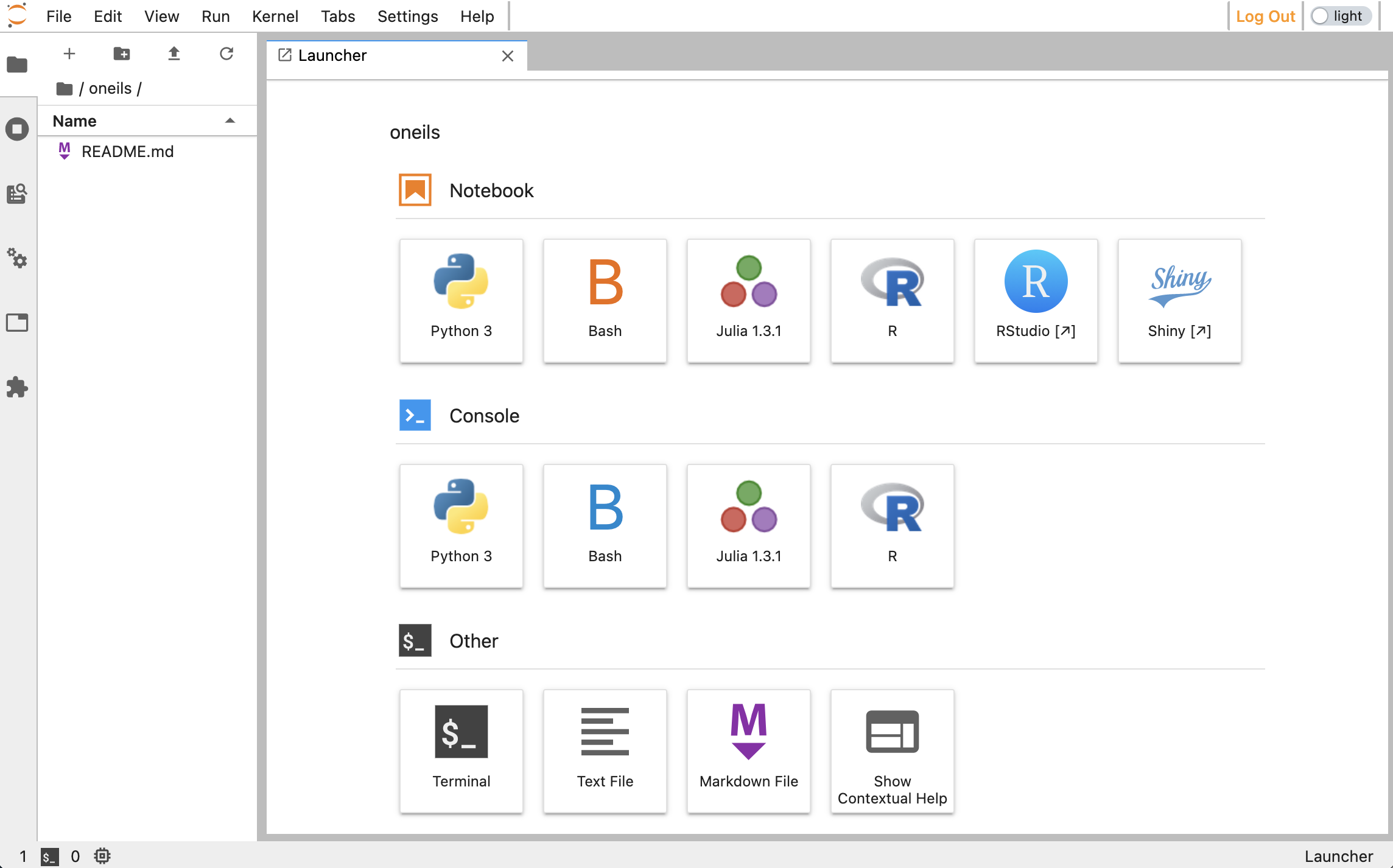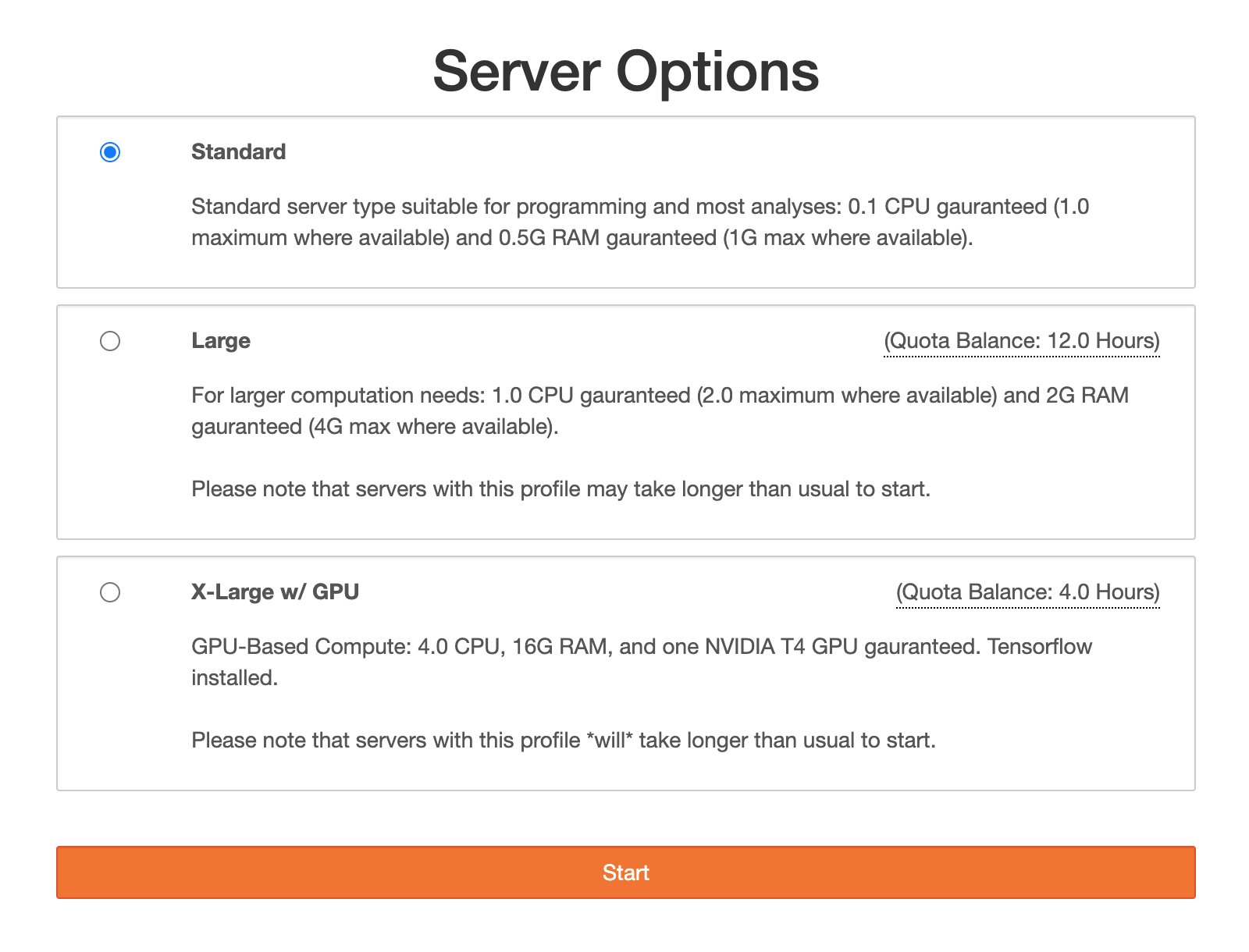DS@OSU was a project I had the priveledge of co-leading (along with Dr. Robin Pappas) in collaboration with Oregon State UIT. Driven by a broadly recognized need to enable accessible and scalable infrastructure for data science (and related) instruction, we embarked on campus-wide needs assessments, a steering committee, technical and faculty advisory committees, fact-finding sessions with peer institutions, and eventually platform implemention.
Based on the Zero to JupyterHub kubernetes-based deployment pattern, DS@OSU provides a number of additional custom features:
-
Cloud-based, autoscaling access to JupyterLab, RStudio, command-line, and related data science tools for classes and similar workgroups.
-
Data for each “Hub” (e.g. for a single class) lives in a hub-unique space, with two levels of permissions: admins (e.g. instructors and TAs) have read/write access nearly everywhere in the class data space, including inside users (e.g. students) home folders, while users have read/write access in their own home folders and designated shared-data folders.
-
Login from Canvas, with admin/user roles determined by Canvas roles (instructors and TAs are admins, students are regular users). Login with NativeAuthenticator is also supported to independent user management (sans Canvas).
-
Admins/Instructors can easily add hub-wide Python packages, R packages, and command-line utilities/scripts via the permissioned shared data space. (Individual users can also install packages for their own use.)
-
Admins/Instructors can customize user environments with login and startup scripts, including for Python notebooks, bash, and R/Rstudio.
-
Optional computational profiles for different compute needs, including GPU-compute. Adjustable auto-renewing quotas encourage judicious use and control costs.




